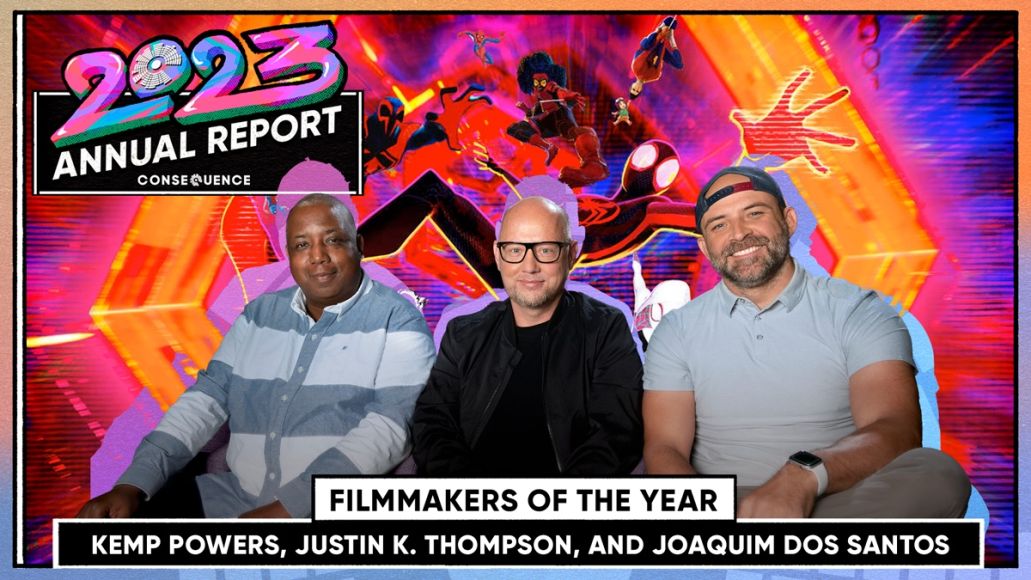Our Annual Report swings on as we name Spider-Man: Across the Spider-Verse directors Joaquim Dos Santos, Kemp Powers, and Justin K. Thompson our Filmmakers of the Year. Find all the best in music, film, and TV from 2023 –including our 25 Best Films list — by checking out our full Annual Report here. You can also check out the full interview with the filmmaking trio on the latest episode of the Consequence UNCUT podcast, available wherever you listen or by using the player below. Note: The player automatically displays the latest episode. To see past episodes, click the “playlist” button (three parallel lines) in the bottom right corner of the player.
Comic book movies have undoubtedly lost some of their panache over the last few years. With notable exceptions, they’ve largely become cut-and-paste, CGI smorgasbords lacking the character and soul of the pre-Endgame classics — homogenized approximations of art, like AI. But in the right, human hands — say, directing trio Joaquim Dos Santos, Kemp Powers, and Justin K. Thompson, our Filmmakers of the Year — superhero movies can still be, well, super.
More than just bucking the trend of comic book movies in 2023, Spider-Man: Across the Spider-Verse completely reconceptualized the capabilities of animation. Calling it a visual feast doesn’t do justice to the intricate, dynamic, beautiful images of the story — and make no mistake, they are part of the story, not simply a canvas for it. Every color, every style choice is made with great deliberation to match the emotional momentum of the characters; look at the pastel watercolors in Gwen’s scenes with her dad, or the change from dark to electric hues when Miles decides to reject his destiny.
“When we were developing the story, we were constantly talking about what the characters are feeling. What is the internal story going on? Not the external idea,” explains Thompson during a four-way Zoom call with Consequence. “We really started to grab onto this idea of letting the picture actually describe what’s going on internally with the characters, because we have this amazing medium that we’re making this film in. We have absolute control of that. So we can ask ourselves what color would it be if Gwen is sad? What kind of colors make Miles feel comfortable?”
It’s a blend of earnest storytelling and art that corporate production machines rarely cultivate, and of which AI could (literally) never dream.
“I think the algorithm is a human heart,” Thompson says. “I think the algorithm is in the soul, and I think you have to let humans bring their soul to this kind of movie and it can only be done with fingerprints.”
There are thousands of fingerprints all over Across the Spider-Verse, the sequel to 2018’s smash Into the Spider-Verse. Counting everyone involved in various departments — animation, sound, editorial, etc. — over 1,000 individuals worked on the film, the largest crew ever for an animated production.








